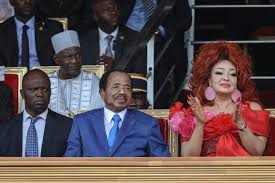
Cameroon’s 92-year-old President Paul Biya made a rare public appearance on Tuesday, kicking off his campaign for an eighth term in office. Speaking to supporters at a stadium in Maroua, a city in the Far North Region, Biya pledged to bolster security, tackle youth unemployment, and upgrade infrastructure if re-elected in Sunday’s vote.
“My goal, my fellow citizens, is for every young person, wherever they may be, to have opportunities that enable them to easily find a job or become an entrepreneur,” Biya declared.
The Far North, a predominantly Muslim and economically disadvantaged region, has long suffered from attacks and kidnappings by Boko Haram militants. It also holds strategic electoral weight, representing nearly 20% of Cameroon’s 8.2 million eligible voters. Two of Biya’s former allies opposition candidates Bello Bouba Maigari and Issa Tchiroma Bakary have strong support in the area.
Biya’s appearance marked his first campaign outing, following a weeklong stay in Switzerland. No official explanation was given for the trip, though the president has frequently traveled to Europe for private visits and medical care. His prolonged absences and limited public visibility have fueled criticism about his ability to govern at his advanced age.
Cameroon, home to nearly 30 million people, continues to grapple with deep-rooted challenges. A violent separatist conflict in the west, widespread corruption, and underdevelopment persist despite the country’s wealth in natural resources like oil and minerals. According to U.N. estimates, 43% of Cameroonians live in poverty, measured by access to income, education, and healthcare.
Despite these issues, Biya remains the frontrunner in the election. His main rival, Maurice Kamto, was disqualified from running in August, and the opposition remains fragmented. Past elections in Cameroon have been marred by allegations of bias and irregularities, with electoral officials often linked to Biya’s administration. The constitutional two-term limit was removed in 2008 through a parliamentary vote, allowing Biya to extend his decades-long rule.
As the country heads to the polls, Biya’s campaign promises and enduring presence raise questions about the future of leadership and governance in Cameroon.



